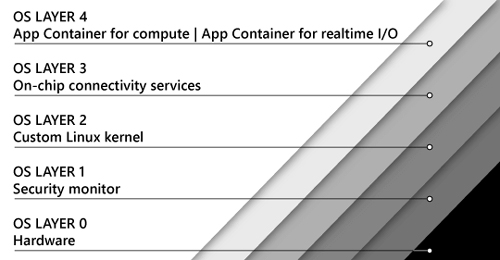A Linux Kernel at the Heart of a New Microsoft OS
Microsoft hearts Linux and all, but the company is reaching a new level.
In a slew of security news this week, Microsoft unveiled an operating system product -- not an internal system, but an operating system product -- that it will release with a Linux kernel.
The product is Azure Sphere OS, and it's part of Microsoft's ambitious effort to place itself at the center of the emerging swarm of Internet of Things (IoT) with Azure Sphere, a combination of a reference architecture for microcontroller units (MCUs), operating systems for the devices themselves, and a cloud-based Azure Sphere Security Service to manage and secure them all. Go here for a detailed look at the broader Azure Sphere initiative, which is expected to result in shipping products by the end of the year.
In announcing Azure Sphere during a security news briefing on Monday, Microsoft President and Chief Legal Officer Brad Smith took a moment to acknowledge the significance of the Linux component.
"For anybody who has been following Microsoft, I'm sure you'll recognize that after 43 years, this is the first day that we're announcing that we'll be distributing a custom Linux kernel," Smith said. "It's an important step for us, it's an important step I think for the industry, and it will enable us to stand behind the technology the way I believe the world needs, because what we will do is ensure that these devices are secured throughout their 10-year lifetime with the continuing improvements and updating to the Azure Sphere operating system."
Microsoft describes the Azure Sphere OS as a trustworthy, defense-in-depth operating system. The OS has five layers, with OS Layer 0 interacting with the hardware, OS Layer 1 running a security monitor, OS Layer 2 hosting the custom Linux kernel, OS Layer 3 covering on-chip connectivity services, and OS Layer 4 sporting app containers for compute and real-time I/O.
 The custom Linux kernel is at OS Layer 2 of Microsoft's forthcoming Azure Sphere OS. (Image source: Microsoft)
The custom Linux kernel is at OS Layer 2 of Microsoft's forthcoming Azure Sphere OS. (Image source: Microsoft)
Microsoft is not conceding defeat here to Linux, with which Windows has fought for decades, but more of a tactical cooperation with the open source community that Microsoft has increasingly worked with for the last several years.
Microsoft is still sprinkling the operating system with Windows features, and recognizing that Linux has a more efficient kernel for the limited devices of IoT.
"This is a new operating system. It's based on a custom Linux kernel -- a custom Linux kernel that has really been optimized for an IoT environment and is reworked with security innovations pioneered in Windows," Smith said. "Of course, we are a Windows company, but what we've recognized is the best solution for a computer of this size in a toy is not a full-blown version of Windows. It is what we are creating here. It is a custom Linux kernel, complemented by the kinds of advances that we have created in Windows itself."
Even with those caveats, this is a significant step for Microsoft. This is a company that always saw Windows as the answer to any operating system question -- from Windows Datacenter Server in the largest use case to the recent Windows IoT Core for the very smallest.
The new days at Microsoft just keep on coming.
Posted by Scott Bekker on 04/17/2018 at 10:45 AM